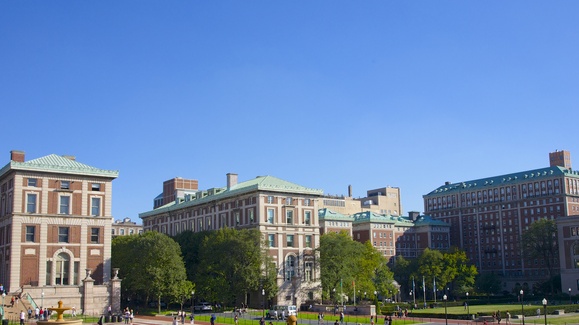The mayor of Jackson, Mississippi, and a state senator stood together during a unique graduation ceremony on Saturday and apologized for police violence that resulted in the death of two people 51 years ago at Jackson State University, a historically Black college previously known as Jackson State College.
The Philadelphia Tribune reports Mayor Chokwe Antar Lumumba and state Sen. Hillman Frazier remembered Jackson State student Phillip Lafayette Gibbs, high schooler James Earl Green and 12 others who were killed by police during a special event honoring the Class of 1970. The graduating student body that year didn't receive a ceremony at the time because violence engulfed the campus.
On May 15, 1970, police used violence while responding to protests against racial injustice. Gibbs was just 21 at the time while Green was a mere 17 years old.
Lumumba said officers “unjustly gunned down two innocent young Black men, terrorized and traumatized a community of Black students and committed one of the gravest sins in our city’s history.”
“As James Baldwin once wrote: ‘When we cannot tell the truth about our past, we become trapped in it,’” the mayor said. “I believe, as a city, we must publicly atone for the sins of our past and proclaim a new identity of dignity, equity and justice.”
Frazier, who was a Jackson State student in 1970, said he would have been shot if he didn't leave campus on that day to get food. The senator apologized to the families of the victims.
“The state of Mississippi never apologized for the tragedy that occurred on this campus that night — never apologized,” he said. “So, since I’m here representing the state of Mississippi in my role as state senator, I’d like to issue an apology to the families, the Jackson State family, for the tragedy that occurred that night because they took very valuable lives.”
President Richard Nixon's Commission on Campus Unrest stated at the time that police went to campus to quell protesters who were throwing rocks at white motorists. James “Lap” Baker, a member of the Class of 1970, told his account to The Associated Press on Wednesday.
Baker said students were fed up after enduring racial slurs from white residents, having bottles thrown at them and other acts which endangered Black pedestrians while driving through campus. The Jackson State graduate said an officer used his bullhorn to address some students who had gathered around midnight to protest the racial harassment.
After someone in the crowd threw a bottle, police responded with gunshots, Baker said. Nearly 30 seconds of gunfire were recorded in the attack that resulted in the death of Gibbs and Green. The officers also claimed at the time that a sniper had fired at them from a women's dormitory, The New York Times reported. But their statement was never substantiated.
John A. Peoples Jr., who was Jackson State president from 1967 to 1984, spoke during Saturday's ceremony. He said he remembers “the sickening smell of blood” after the shootings.
“We sat on that lawn the rest of the night singing freedom songs,” Peoples said.
The officers responsible for the attack never faced criminal charges. An all-white jury also refused to award money to the Black victims’ families in a civil lawsuit.
While some members of the class of 1970 eventually received their diplomas in the mail, others never got the paper. On Saturday, however, 74 of the more than 400 grads of the class of 1970 showed up in their caps and gowns to receive the overdue recognition.
The sisters of Gibbs and Green accepted posthumous honorary doctorate degrees on behalf of their loved ones. The ceremony took place near the pedestrian zone named the Gibbs-Green Memorial Plaza.
Two weeks before the violence at Jackson State, a massacre unfolded at Kent State University in Ohio. Four unarmed students were killed after Ohio National Guard troops opened fire on a group of people protesting the war in Vietnam. Nine others were also injured in the violence.
